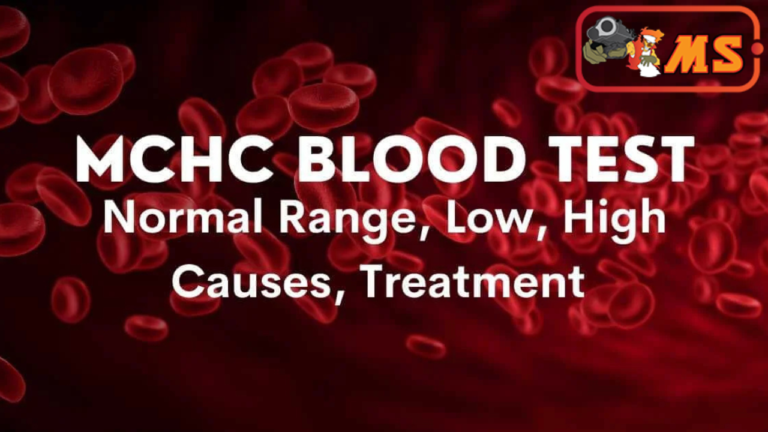If you’ve ever had a blood test, you may have come across the term MCHC. While it might sound a bit technical, understanding what it is and why it matters can empower you to make informed decisions about your health. In this article, we’ll break down what the MCHC blood test measures, why it’s important, and what the results could mean for you.
What is MCHC?
MCHC stands for Mean Corpuscular Hemoglobin Concentration. It is a calculation that measures the average concentration of hemoglobin in a given volume of red blood cells. Hemoglobin is the protein in red blood cells responsible for carrying oxygen throughout your body.
MCHC is typically reported in grams per deciliter (g/dL) and is one of the key parameters included in a Complete Blood Count (CBC) test. This test provides a broad overview of your blood health, including the number of red blood cells, white blood cells, and platelets, along with various measurements related to these cells.
Why is the MCHC Blood Test Important?
The MCHC value helps healthcare providers evaluate the condition of your red blood cells and overall health. Here are some key reasons why this test is significant:
- Anemia Diagnosis: Anemia occurs when you have fewer red blood cells than normal or when your red blood cells don’t contain enough hemoglobin. MCHC can help identify the type of anemia you may have, such as hypochromic anemia (low hemoglobin concentration) or hyperchromic anemia (high hemoglobin concentration).
- Identifying Other Health Conditions: Abnormal MCHC levels can be associated with various medical conditions, including liver disease, thalassemia, and spherocytosis. Monitoring these levels can aid in the diagnosis and management of such conditions.
- Monitoring Treatment Effectiveness: If you are being treated for a condition affecting your red blood cells, your doctor may use the MCHC test to monitor how well your treatment is working over time.
What are Normal MCHC Levels?
Normal MCHC values typically range from 32 to 36 g/dL, but this can vary slightly depending on the laboratory and the methods used. It’s essential to consider these ranges when interpreting your results. If your MCHC falls outside of the normal range, it may indicate an underlying issue that requires further investigation.
Low MCHC Levels
Low MCHC levels, also known as hypochromia, may indicate conditions such as:
- Iron Deficiency Anemia: The most common form of anemia, where your body lacks enough iron to produce hemoglobin.
- Thalassemia: A genetic blood disorder that affects hemoglobin production.
- Chronic Blood Loss: Ongoing loss of blood can lead to decreased red blood cell production.
High MCHC Levels
Conversely, high MCHC levels, or hyperchromia, might suggest:
- Hereditary Spherocytosis: A genetic condition causing red blood cells to be spherical rather than disc-shaped, leading to easier destruction of the cells.
- Dehydration: Concentrated blood due to fluid loss can artificially raise MCHC levels.
- Liver Disease: Conditions affecting liver function can influence hemoglobin production and concentration.
How is the MCHC Blood Test Performed?
The MCHC blood test is performed as part of a CBC. Here’s what you can expect during the process:
- Sample Collection: A healthcare professional will take a small blood sample, typically from a vein in your arm. The area will be cleaned, and a needle will be inserted to draw blood into a vial.
- Laboratory Analysis: The blood sample will be sent to a laboratory, where it will be analyzed for various components, including MCHC.
- Results: Once the analysis is complete, your healthcare provider will receive the results, usually within a few days. They will review the MCHC levels along with other CBC components to assess your overall health.
What to Do if Your MCHC Levels are Abnormal?
If your MCHC levels are outside the normal range, it’s crucial to follow up with your healthcare provider. They may recommend additional tests to pinpoint the underlying cause of the abnormal results. Depending on the findings, treatment options may include dietary changes, supplements (such as iron), or other medical interventions tailored to your specific needs.
Conclusion
The MCHC blood test is a valuable tool in assessing your blood health, particularly in diagnosing and managing conditions related to red blood cells. Understanding what MCHC is and what your results mean can help you engage more effectively in your health care. If you have concerns about your blood health or the results of your tests, don’t hesitate to consult with your healthcare provider for personalized advice and recommendations.
Remember, taking charge of your health involves being informed and proactive. Understanding tests like the MCHC can help you better navigate your healthcare journey!

